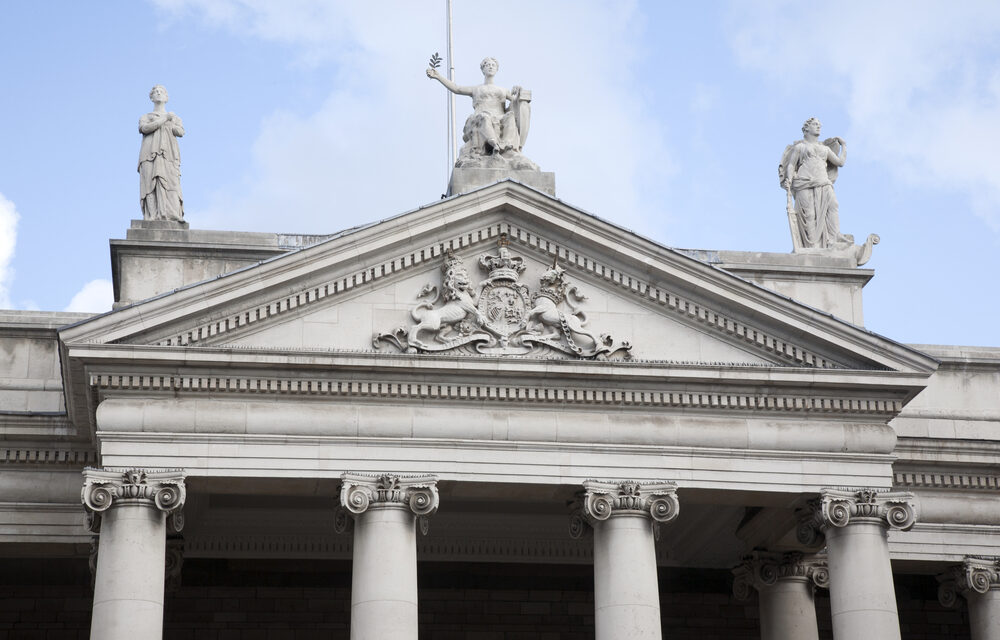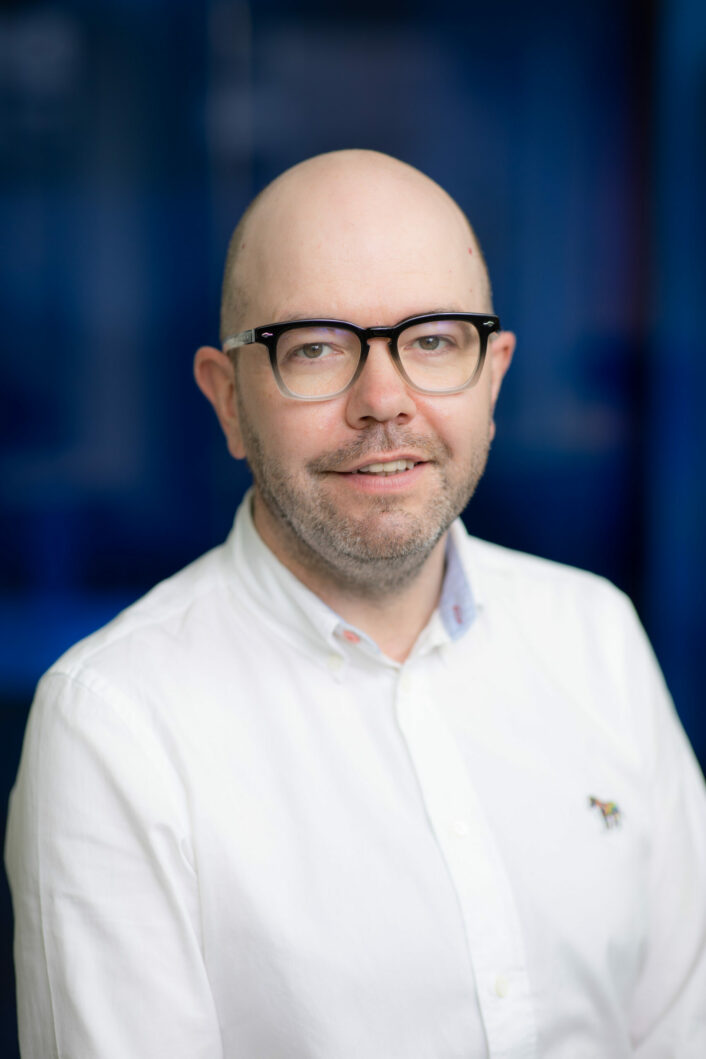
In University of Galway’s Literary & Debating Society, Oliver Wall first practiced the leadership skills that would stand to him throughout a rich career in politics and corporate affairs. A former adviser in the Department of an Taoiseach during Ireland’s Presidency of the EU Council, Oliver Wall is now Chief of Staff and Head of Corporate Affairs at Bank of Ireland. We caught up with Oliver to learn more about the impact of his work at Bank of Ireland, from wellbeing at work to greenhouse gasses and more.
CC: Take us through a day as Chief of Staff and Head of Corporate Affairs at Bank of Ireland.
OW: Clichéd as it may sound, no two days are the same. As well as being Chief of Staff to the Group Chief Executive Officer, I also have responsibility for External Communications, the Office of the General Counsel, and the Group Secretariat and Corporate Governance Office. My days can vary between working on our corporate strategy, meeting with customers, dealing with the media, setting agendas for our Board, to spending time with colleagues throughout the group. It’s certainly never boring!

“For colleagues working remotely, it felt less like ‘working from home’ and more like ‘living in the office.’ “Power Down and Recharge” was exactly as described – Bank of Ireland’s commitment to encourage everyone to switch off and recharge during and after the working day.”
CC: Bank of Ireland’s wellbeing strategy, “Power Down and Recharge” encourages colleagues to switch off and recharge during and after the workday, ensuring that employees sustainably distribute their workload. Firstly, tell us how this model came about and secondly, do you think is a model that other sectors could benefit from?
OW: “Power Down and Recharge” was something we began during the COVID-19 pandemic. For many of our colleagues, the boundaries between work and life became blurred during the pandemic. For colleagues working remotely, it felt less like ‘working from home’ and more like ‘living in the office.’ For colleagues working in branches, there were extra challenges and stress. All colleagues were united by the fact that we were all working differently to before. “Power Down and Recharge” was exactly as described – Bank of Ireland’s commitment to encourage everyone to switch off and recharge during and after the working day. This meant promoting routines with regular rest breaks, respecting flexible working arrangements and building in recharge time throughout the working day. We put in place a number of wellbeing supports during 2020 that continue today.
I think it is certainly something other companies and sectors could benefit from. Wherever you work, ensuring that people can switch off and rest is central to productivity. Exhausted people will never be at their best. We have actually worked with a number of our customers to share our process, and I know many of them have adopted similar programmes.
CC: I see that Bank of Ireland became the first Irish bank to have their greenhouse gas (GHG) emission targets validated by the Science-Based Targets initiative (SBTi) in 2022; a big milestone. Can you tell us more about BOI’s sustainable finance strategy, and its impact in terms of building a sustainable economy?
OW: Combatting climate change is one of the biggest challenges facing society and Bank of Ireland is committed to supporting the transition to net zero by 2050. We set ambitious GHG reduction targets and were delighted to be the first Irish bank to have these targets validated by the SBTi. Under the targets, we are committing to emission reductions of 48% in our residential mortgage portfolio and 56% in our commercial real estate portfolio by 2030 as well as 49% from our own operations. We have also committed to ensuring that 25% of Bank of Ireland’s corporate loan portfolio will have SBTi-validated targets by 2025.
Sustainability is at the centre of our updated strategy, which we set out earlier this year. Our core sustainability pillars are; supporting the green transition, enhancing financial wellbeing and enabling colleagues to thrive. We have firmly moved from ambition to action, taking practical steps to support our customers and Bank of Ireland towards a more sustainable way of living and doing business. In 2022, there was a significant increase in the level of sustainability-related lending, with Irish green mortgages a particular standout. We’ve reached an important inflection point here, with around half of new mortgages in Ireland being green. We also continue to drive forward our financial wellbeing agenda, and foster a collaborative and inclusive environment for colleagues.
CC: How did your past experience as a student help you along in your career path, and can you recall your most memorable moment from your time at University of Galway?
OW: I learned so much as a student in Galway – often as much outside the classroom and lecture theatres as inside. Learning how to question, think critically, and challenge accepted norms and pre-conceived ideas have all stood with me throughout my career. Many of my outstanding memories from this time are from [The Literary and Debating Society] Lit & Deb on Thursday nights in the Kirwan lecture theatre (and continuing in the bar after!). These are transferrable skills, and wherever I have worked – across Government and the civil service, through to the private sector in Ireland, the UK, and Europe – what I learned at this time has served me well.
CC: What advice would you offer to current students at University of Galway?
OW: Be bold, be brave. The less obvious career opportunities I’ve taken have always turned out to be some of the best decisions I’ve ever made.
